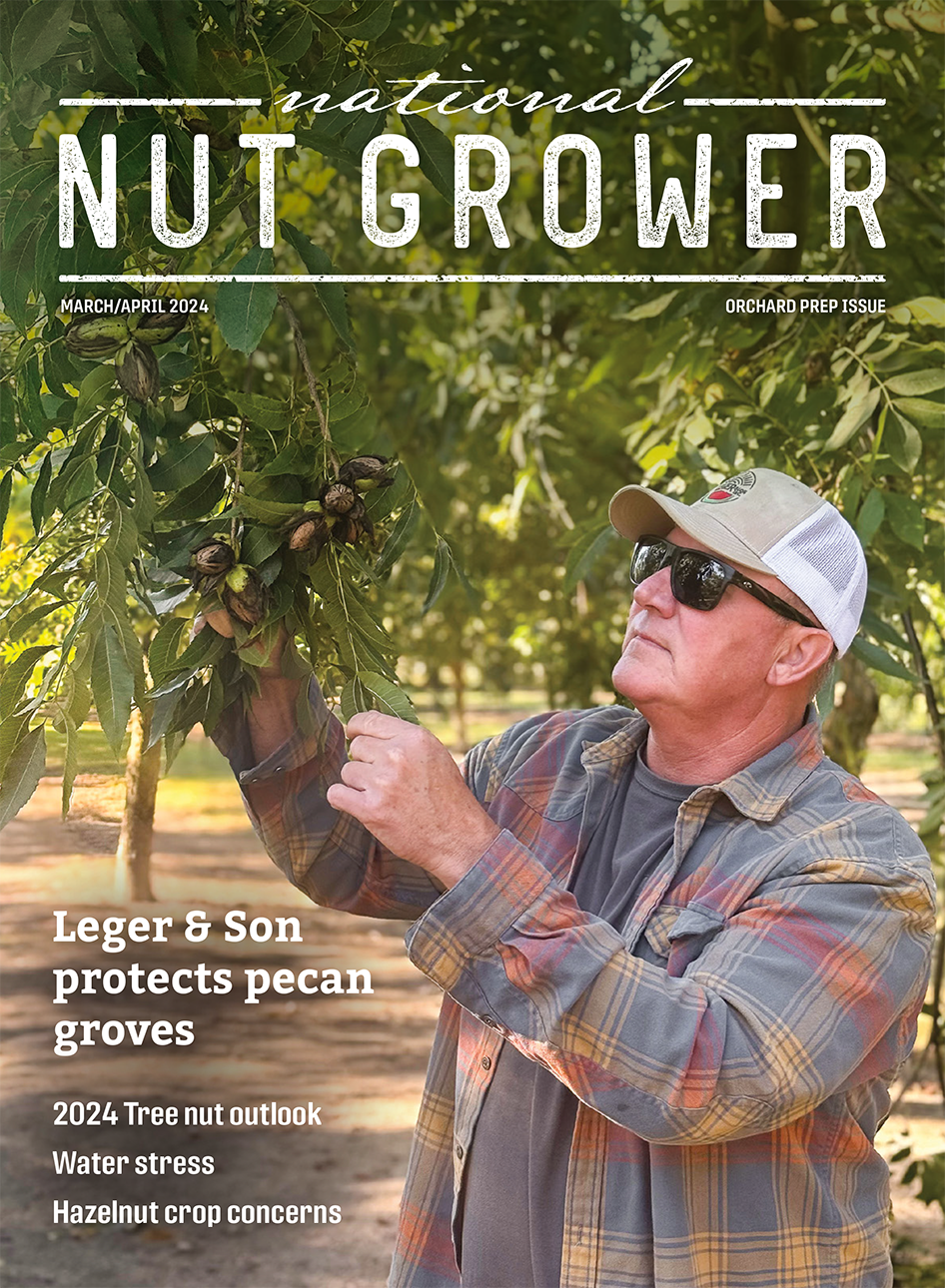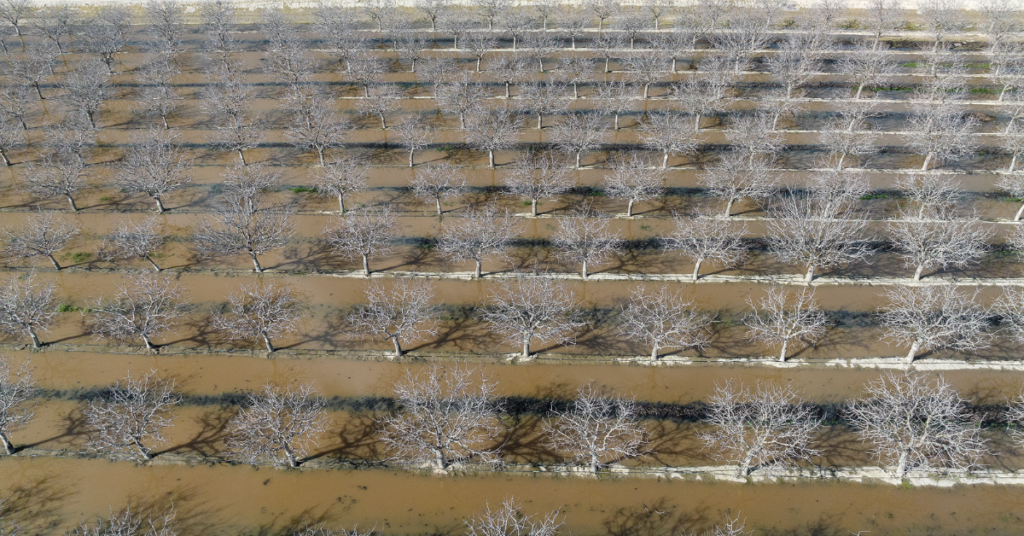
July/August 2023
A change in philosophy
At Terranova Ranch, sustainability and concern for the environment fuel efficient growth of almonds, pistachios and walnuts, as well as numerous vegetables and winegrapes. The San Joaquin Valley operation of 9,000 acres, in Helm, California, employs technology and new growing practices to conserve water and power to sustainably grow crops.
Healthy soil and sustainable growing practices, including groundwater recharge, whole orchard recycling and native pollinator hedgerows, are important for the farm managed by Don Cameron, vice president and general manager, a half hour southwest of Fresno, California.
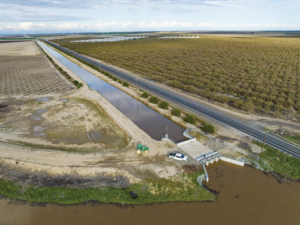
Terranova grows more than 25 crops, mostly on contracted acreage, including fresh and processed onions and garlic, fresh carrots, broccoli for seed, processing tomatoes and cabbage.
Terranova planted its first tree crop, walnuts, in 1997. Pistachios followed in 2006 with almonds going into the ground in 2008. Terranova grows 150 acres of walnuts, 500 acres of pistachios and 935 almond acres.
The company began farming in 1979. Cameron joined in 1981 as vineyard manager. Six years later, he took over management.
Exiting the commodity trap
In the early 2000s, Terranova changed its philosophy, leaving commodity crops such as cotton, alfalfa hay, wheat and barley. In the path to specialty crops, the company wanted to leave commodities that require price support, which don’t react to market changes.
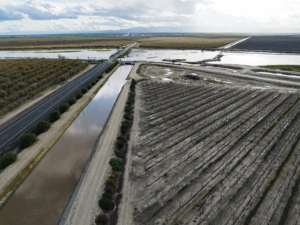 “We made a conscious change that we wanted to be more diverse,” Cameron said. “We wanted to get into higher value crops. We really pursued going down different avenues.”
“We made a conscious change that we wanted to be more diverse,” Cameron said. “We wanted to get into higher value crops. We really pursued going down different avenues.”
Contracting added more stability and helped Terranova’s long-term success. It considers crops other growers may overlook.
“New crops for us are critical,” Cameron said. “Being flexible and looking for other crops, it’s about change, which is difficult for many people to embrace. Sometimes, we get into thinking how we know how to grow this crop, so we don’t want to take on new challenges. We embraced the challenge of change and do the best we can to make it work.”
Challenges in nut crops include effective sanitation during the off season primarily for navel orange worm control. “It’s much more effective to have good sanitation than trying to spray yourself out of an insect problem that could have been prevented during the dormant season,” Cameron said.
Nut growing challenges
The groves require close attention. “Regulating water schedules to maintain proper growth and development of the trees from young trees to maturity has to be monitored closely,” Cameron said. To better maintain proper moisture levels, Terranova has automated some of its fields. Aerial photos also display moisture stress and development.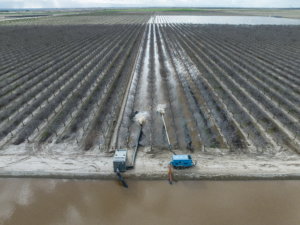
During and after the pandemic, ports issues and logistics problems have made the nut deal more challenging. Almond prices dropped substantially following high California plantings and not being able to ship due to container issues with a world oversupply kept walnut prices low.
“Unfortunately, we are in an oversupply situation with almonds and walnuts due to the port issues,” Cameron said. “Exporting these crops has been extremely difficult this past season and rather than reducing inventory, we have added to it which has depressed prices to levels that are unsustainable to growers.”
Cameron is optimistic supplies will meet demand. “I am hopeful that we can move forward with reducing carryover supplies and attain a better balance and pricing scenario,” he said. “We know that the 2022 almond crop was greatly affected by spring frost. Couple this, low prices with low yields, and we have a very difficult situation for most growers.”
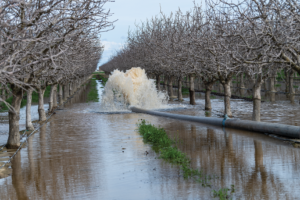 Before the torrential rains of 2023, California’s long running drought was pinching production. Fields were being taken out of production due to the state’s severe drought and water shortages and restrictions, Cameron said.
Before the torrential rains of 2023, California’s long running drought was pinching production. Fields were being taken out of production due to the state’s severe drought and water shortages and restrictions, Cameron said.
While automated irrigation limits water use on permanent plantings, Terranova found difficulty applying it to short-term field crops. Wells are monitored via smart data usage, including energy use and the costs and volume of pumping. Employees use tablets to view aerial images to check on water stress and plant growth.
Water, energy conservation
Decades ago, Terranova developed a system to recapture flood water for crops, maintaining aquifer levels, important when California growers are seeing more water restrictions.
In whole orchard recycling, trees coming out of production are ground, returning wood chips to the ground to sequester carbon. Some of the mulch from almond trees is used in the pollinator hedgerows to maintain moisture, prevent weeds and keep erosion at a minimum as plants become established.
Pollinator hedgerows planted along canals prevent erosion. Native pollinators, including hummingbirds, are beneficial to seed crops and almonds and attract habitat, including milkweed, which invite monarch butterflies.
Variable speed motors allow energy conservation by matching water needs. Terranova recently transitioned from gasoline powered ATV quads to cordless John Deere Gators. The company also moved tractors, forklifts and backhoes to lower-emission equipment.
Cameron speaks of cycles, when field crops will be more valuable one year than nut crops or the opposite.
“Historically, tree nuts have been an anchor to a farm when other commodities have been low in price,” he said. “These have provided stability. Currently, the opposite is true. We have seen it totally opposite where field crops were low and tree crops high. That’s why we’ve been able to survive and make it through some of the tough times.”
Despite the difficult times, Cameron remains optimistic on nuts. “We’ve had a good experience growing nuts,” he said. “I believe that the long term outlook will continue to be favorable for tree nuts. We just have to get through the slump we are currently in.”
For more information on Terranova Ranch, visit its website.







